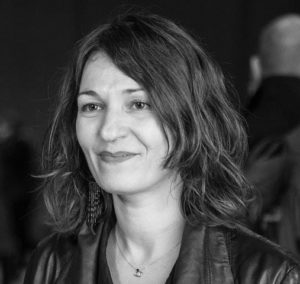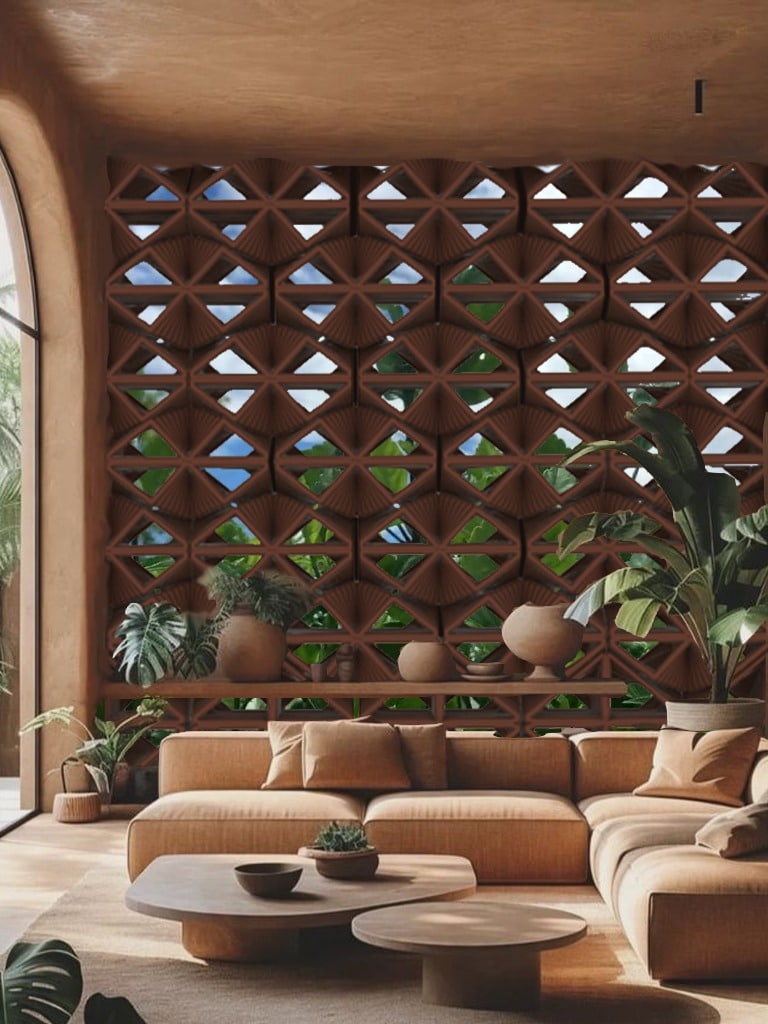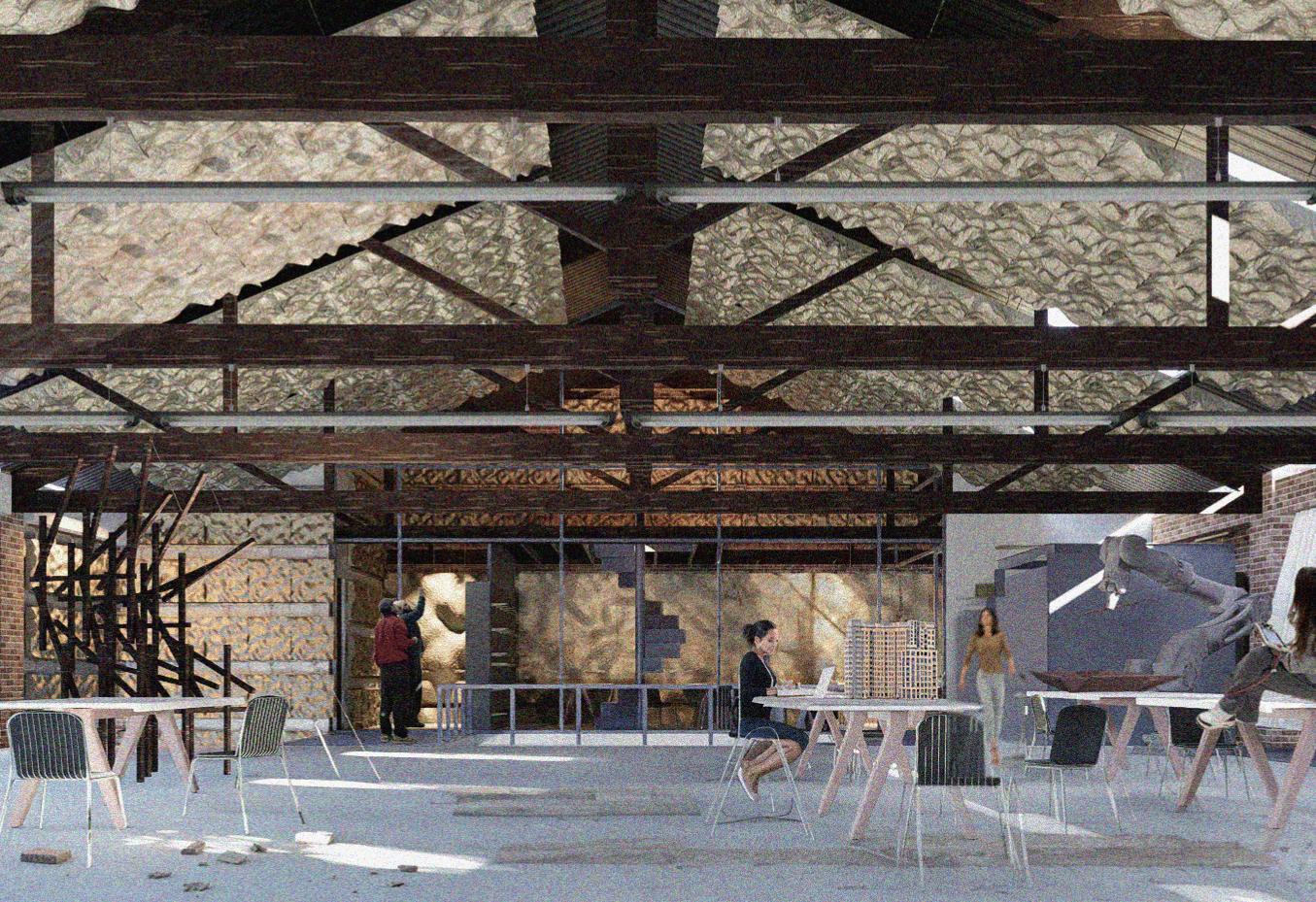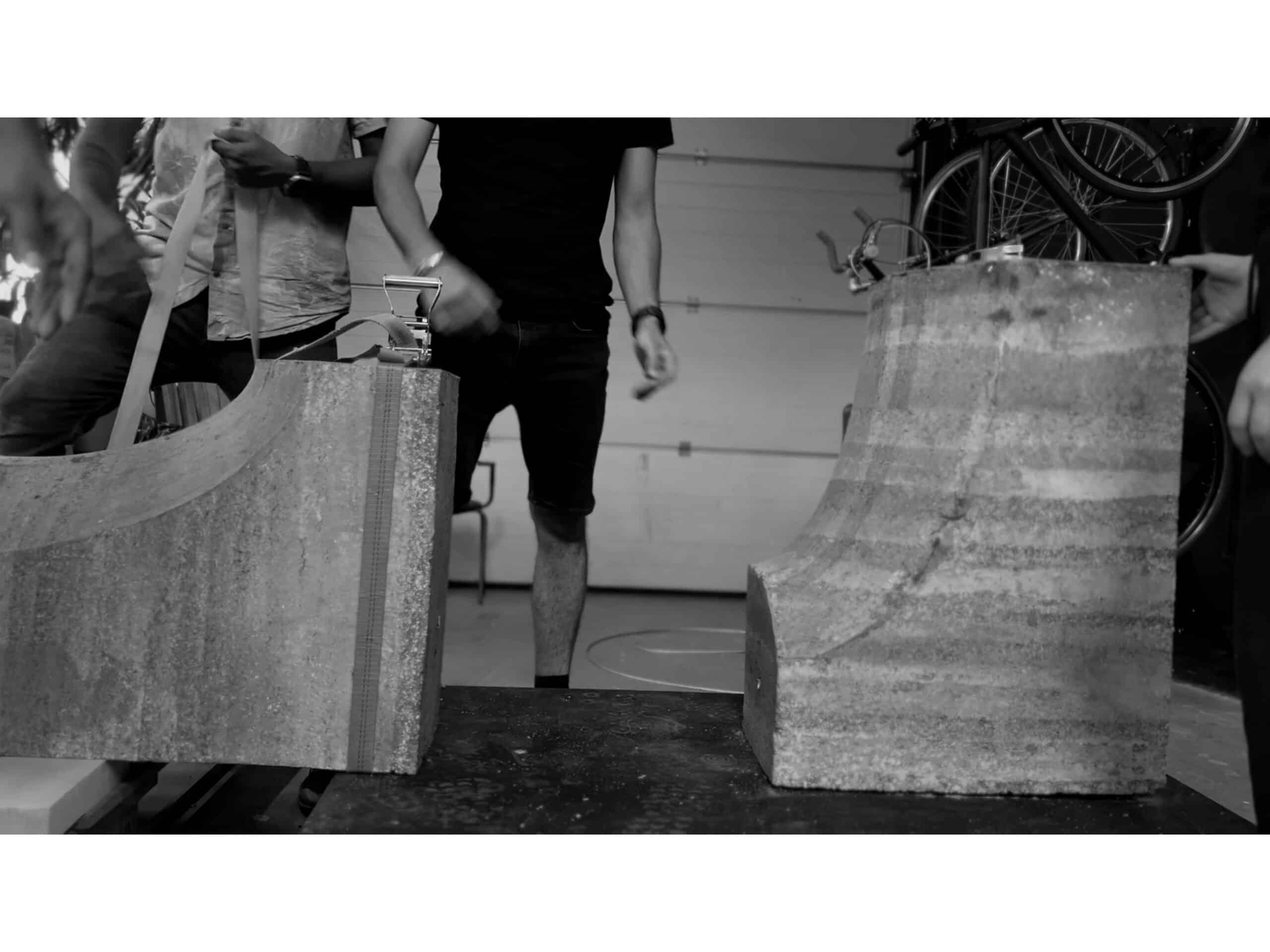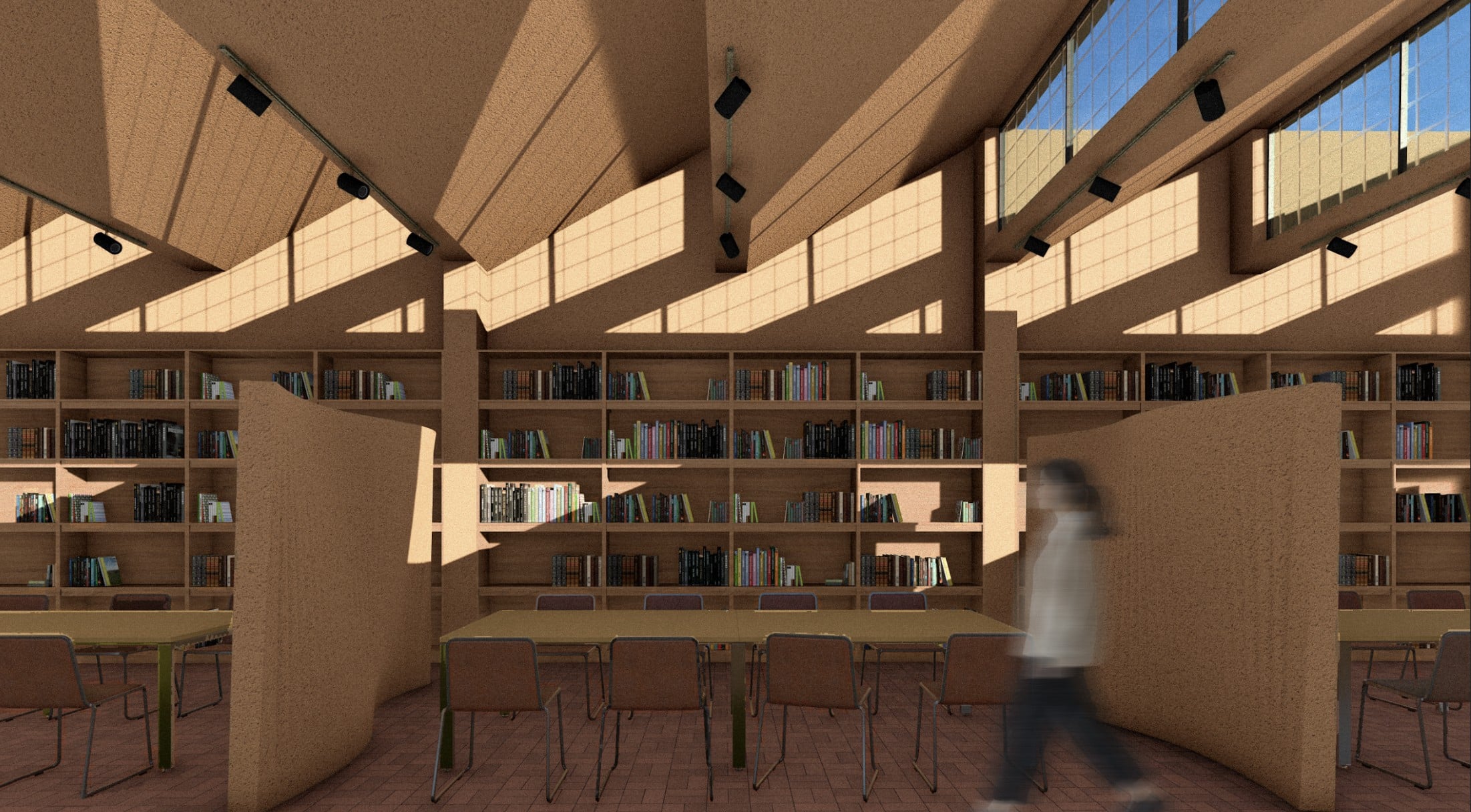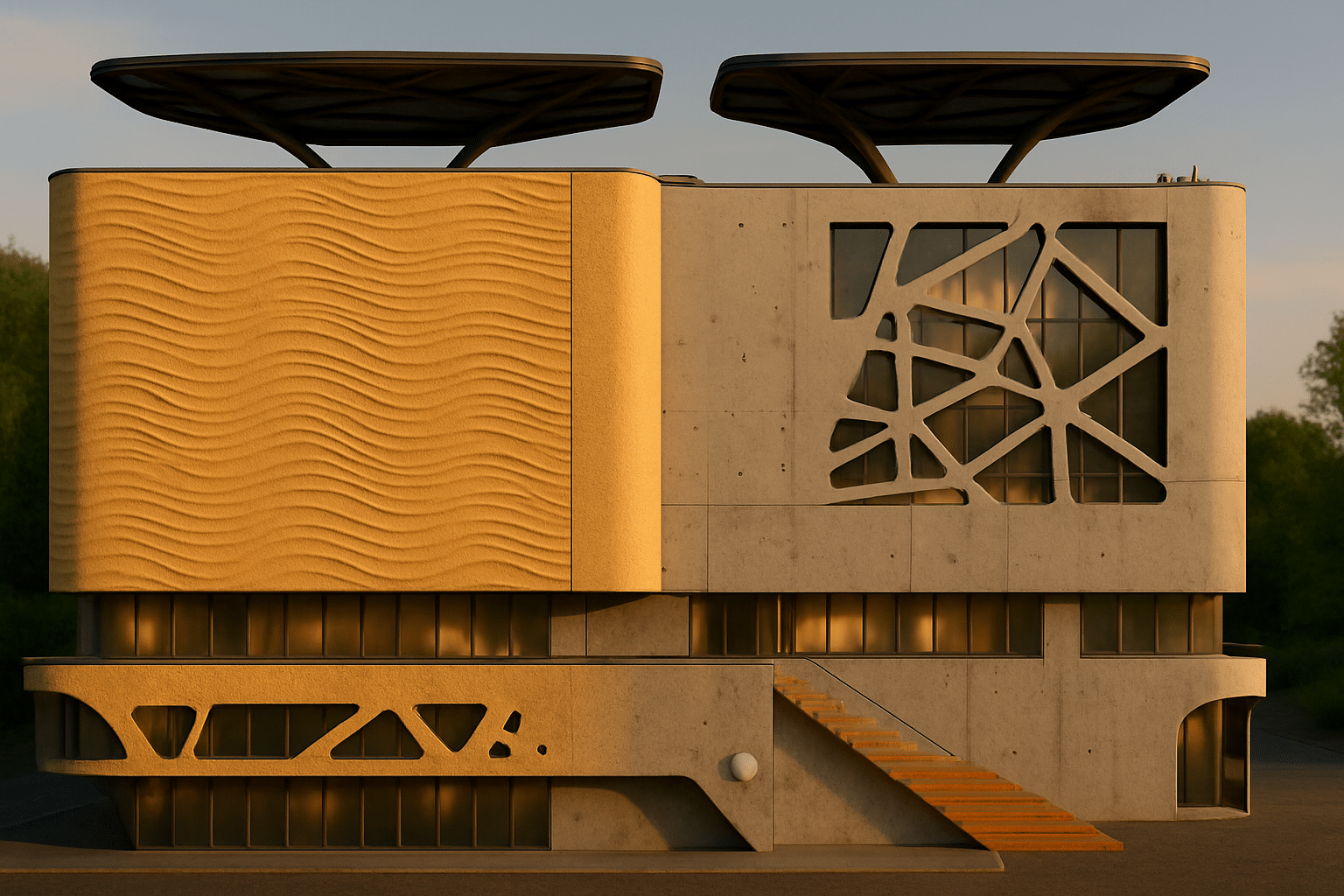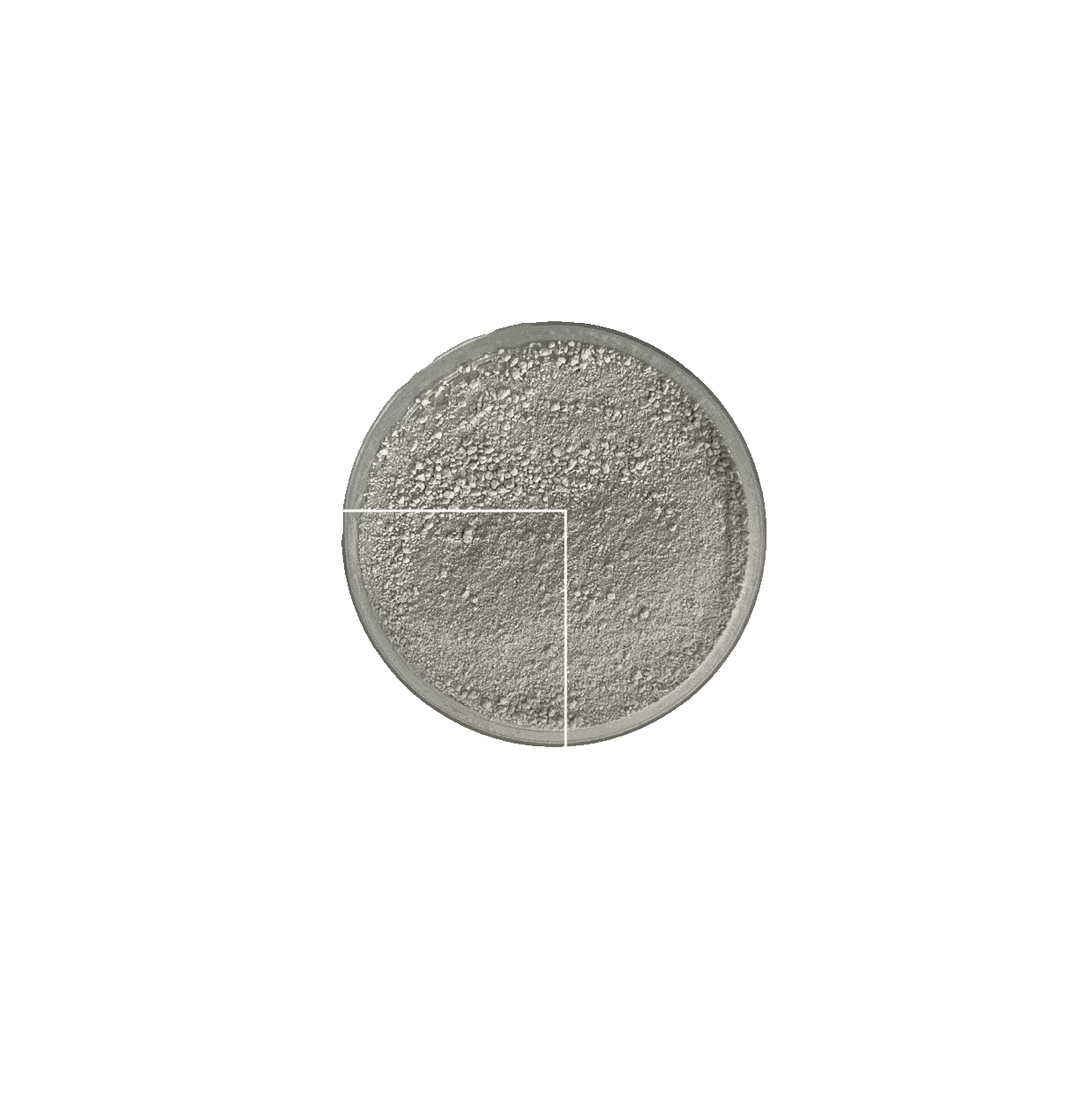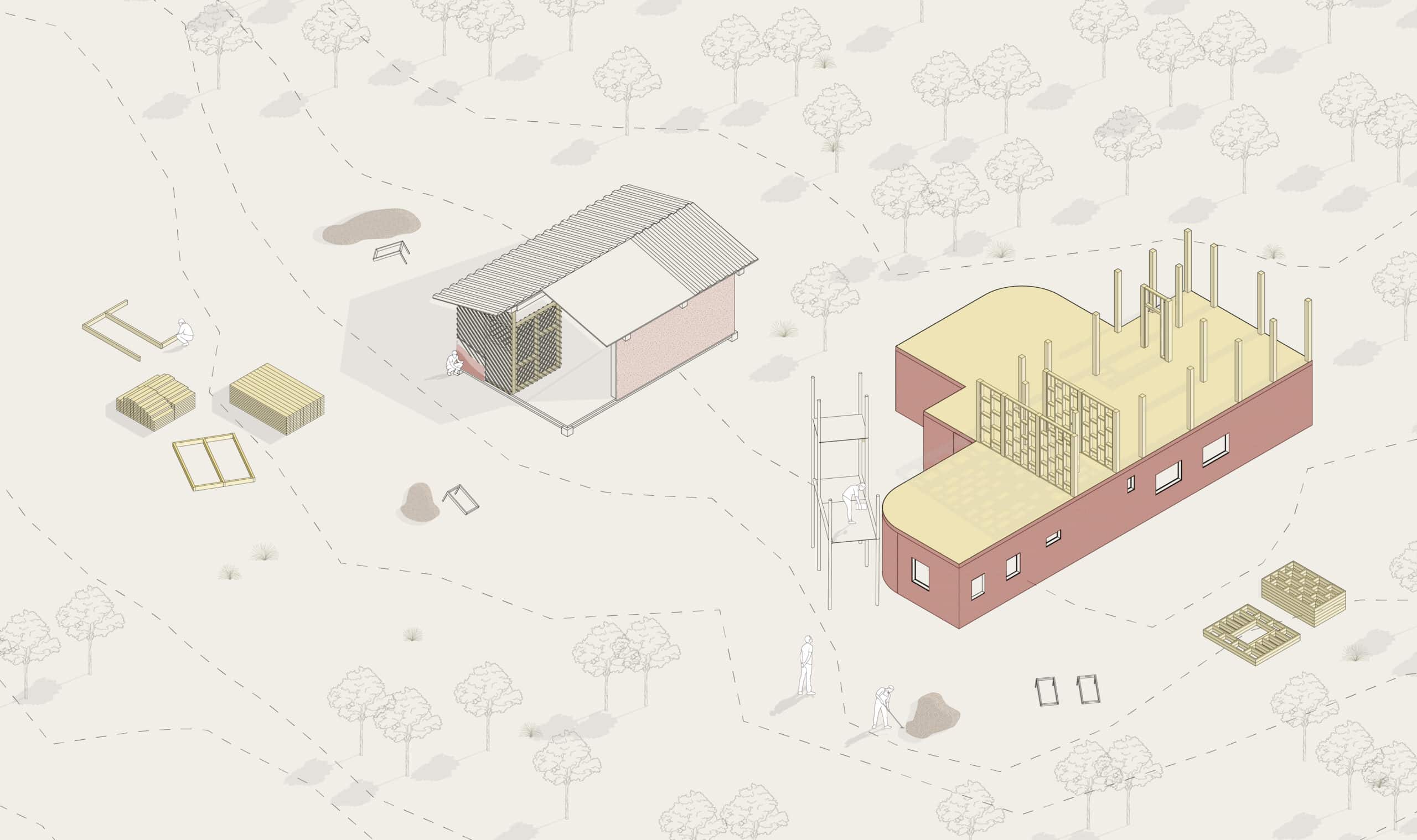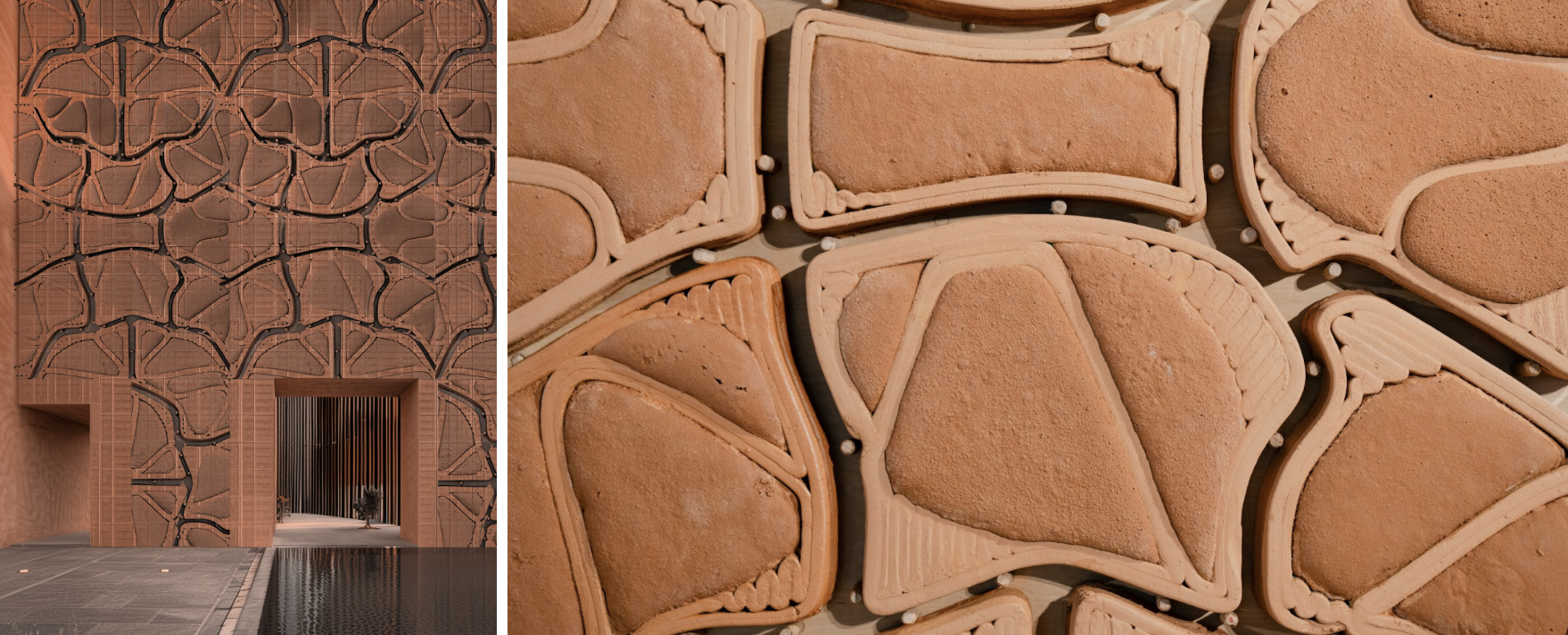
Credits: FRICKS, Digital Matter Studio, IAAC, 2023/24
In an era where anthropogenic materials surpass the weight of all life on Earth, and the construction sector stands as a major driver of ecological disruption, rethinking material practices, coupled with advancements in digital technologies, presents a paradigm-shifting opportunity to address the extractive, consumptive, and contaminating logic and processes of the built environment.
Digital Matter aims to shift the conversation on resource depletion by focusing on abundance rather than scarcity, advocating for material-driven innovations in architecture and urban design that challenge traditional material practice and advance decarbonization goals. Adopting an abundance mindset is a new paradigm relevant to design and construction practices, expanding the definition of “resources” and exploring where both raw and non-raw materials can be sourced and “mined” to offset carbon emissions.
The integration of reclaimed materials, and the upcycling of waste streams, combined with design strategies that facilitate disassembly, promote adaptive reuse, or prioritize the repurposing of existing building stock, challenges conventional design and construction norms while placing materials at the core of circular design and circular carbon economy. Embodied carbon measurements and material analytics on this front become crucial for informed decision-making. Concepts such as urban mining and buildings as material banks call for new practices in digitizing the physical world, including the use of advanced computation for monitoring material flows and carbon offsets, performing life cycle assessments and creating digital material libraries for reuse.
Embracing this paradigm encourages the exploration of unconventional ideas and interdisciplinary collaboration, opening paths for novel approaches, new policies, and innovative uses of digital technologies.
With a strong connection to applied research processes and a network of industrial partners, Digital Matter seeks to explore proposals for novel monitoring, design, and manufacturing processes that effectively detect and reconstitute materials while improving the performance of material assemblies to facilitate reuse. The agenda of the research studio finally advocates for a vision of metabolic architecture: an architecture that digests its waste or decomposes itself; an architecture where its form adapts to material availability, introducing new aesthetics; an architecture that redefines building lifecycles and ultimately regenerates rather than merely reducing its negative environmental and economic footprint.
DIGITAL MATTER & CiD: Circular Design-Innovation Alliance
This year the Digital Matter research line will be part of an Erasmus plus co-funded project by the EU Commission: CiD. CiD focuses on Bio-based Innovation for the built environment by using bio-materials from other sectors, creating regional circular systems in renewable materials, and installing buildings as bio-machines. There are various activities that will be part of the Digital Matter studio structure as part of CiD including:
- Transversal workshops with IAAC, LUH – Leibniz University Hannover, UNIGE – University of Genua(Feb 2025)
- Mentoring Sessions with project partners & experts
- Support sessions for start-up creation
Two projects from the studio will be selected to be further developed in the Tallinn Creative Accelerator between August and September. All expenses for this phase of the project development will be covered (including travel, accommodation, and daily expenses).

Credits: Re:New, Digital Matter Studio, IAAC, 2023/24
Learning Objectives
At course completion the student will:
- Understand and apply the material-driven design methodology to explore innovative approaches to building intelligence.
- Identify resources and develop material systems suitable for various building applications.
- Delve into analysing material opportunities embedded in the fabrication process, creating a coherent and informed narrative of the material lifespan using advanced computational techniques and digital fabrication.
- Establish workflows for designing intelligent, responsive, and sustainable buildings and systems.
- Develop physical or digital prototypes and demonstrators.
- Design through research, conduct scientific experiments, and pioneer architectural solutions for contemporary societal challenges.
- Become experts in smart and adaptive architecture.
- Work on novel material systems for sustainable building design and construction in a rigorous scientific approach.
- Utilise advanced computation to create environmental simulations, form finding, and design optimization processes for intelligent buildings.
- Learn to scientifically analyse the impact and feasibility of innovative design proposals.
- Collaborate in multidisciplinary teams, developing solutions that include expertise from material science, computer science, ecology, among others.



